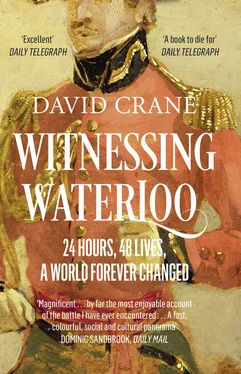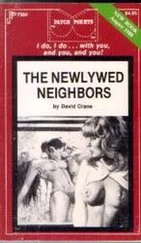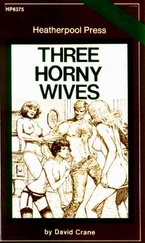There were more glamorous, more distinguished, more powerful literary salons and coteries to be found in London – the room above Murray’s bookshop in Albemarle Street where, under the malignant Thomas Gifford, the Tory Quarterly was hatched; the great Whig Holland House set where Sydney Smith sang for his supper – but nowhere could you meet with such a mixed crowd of people as at Lamb’s. If Charles Lamb had any politics they were certainly on the liberal side of the debate, but that had never stopped his friends spanning the full gamut of political opinion, from Utopian revolutionaries-turned-Tories such as Southey, Coleridge or Wordsworth at one end of the spectrum, to the likes of Hazlitt, Godwin, Leigh Hunt and the radical journalist and satirist William Hone at the other.
The Lambs’ was also the place where the age of Johnson met the age of Dickens and Browning in its embryonic state, and for Crabb Robinson this was its great charm. Robinson knew that the two great ‘beasts’ in the Lamb menagerie would not be there tonight, but he was seeing Wordsworth for breakfast in the morning, and in some ways it was easier when he was not there, less high-minded and, somehow – Robinson hated to let anything cloud his admiration of the man he recognised as the greatest poet since Milton – less constrained by the presence and dues of genius.
Coleridge was away too, in Wiltshire, writing – or at least talking, as only Coleridge could talk – and Hunt would be busy at the Examiner ’s office deep into the night; but so long as there could be one evening without Hazlitt and talk of Bonaparte, Robinson did not mind who else was there. He was painfully conscious that he got the worst of an argument with Hazlitt over the whist tables the last time they had met, and for a barrister it was doubly galling to be bested by a man ‘who was not just wrong but offensive in almost all he said’. ‘When pressed he does not deny what is bad in the character of Buonaparte,’ he had confided to his diary that night, part in anger, part in sadness at their parting of ways, ‘and yet he triumphs and rejoices in the late events. Hazlitt and myself once felt alike on politics, and now our hopes and fears are directly opposed. Hazlitt is angry with the friends of liberty for weakening their strength by going with the common foe against Buonaparte … Hazlitt says: “Let the enemy of old tyrannical governments triumph, I am glad, and I do not much care how the new government turns out … His hatred , and my fears, predominate and absorb all weaker impressions.”’
There seemed to be no one, in fact, that Hazlitt had not offended these last weeks – Charles Burney over the review of his sister Fanny’s latest novel, Wordsworth with his attack in last week’s Examiner , Hunt who had been forced to disown the article – but not even Hazlitt could spoil the pleasure Robinson always felt as he made his way up the steep flights of stairs to the Lambs’ chambers. He was probably too late now to take a hand of whist but after the recent hash he had made of his cards that was probably no bad thing, and it was only deep into the evening, when they were done with cards and the tables put away, and the drink had begun to do its work, that the place came fully alive in all its strange, unruly charm.
The Lambs’ Temple garret was a warren of small, shabby rooms under the roof and two sitting rooms on the third floor below. Charles Lamb had set aside the smaller of the rooms for a library so grimy that Robinson could never bring himself to go in, but the ‘state room’ would be looking as it always did for one of their soirées, with their old, petted servant Becky loading the sideboards with food and porter, while Mary glided in her quiet, measured way among the party and Charles – his hair, as black at forty as at twenty, the one grey and one brown eye already bright with fun and battle – sat like some diminutive, half-tipsy Quaker under the low, smoke-stained ceiling among his Hogarth prints, with his forbidden brandy and forbidden tobacco, and talked and stammered and joked and punned and drank to keep at bay the demons that no talk could hold off for ever.
Even by Charles Lamb’s standards, Robinson thought, they were an odd lot that evening: old Burney talking whist as if he had never watched Captain Cook being murdered or abandoned his wife for his sister; the poet Charles Lloyd, holding on to his sanity by the slenderest of threads; the ageing ’90s radical George Dyer, in the same rusty, threadbare suit of black, the same dirty yellowed wisp of muslin around his throat, the same trousers that stopped short of his ankles and the same battered shoes that he had been wearing when Lamb had first seen him in the library at Christ’s Hospital thirty years before. But as Robinson made his way among the old familiar faces there was one man he found himself watching with an interest that had more curiosity in it than he would have cared to admit.
The stranger had been buttonholed by Lamb, who was bent on securing his interest for another old Christ’s Hospital friend, an epileptic clerk in the Temple with a wife and four children who had fallen on hard times, but for once it was not Lamb who held Robinson’s interest. He knew who Basil Montagu was of course – everyone at the Bar did – and he knew the story of his mother’s killing, but to see him here in the flesh, the refined and almost effeminate image of his father, old Lord Sandwich, was like watching one of Lamb’s Hogarths come to life and Medmenham Monk turn Methodist preacher to denounce the vices of his youth.
Circumstances had combined, in fact, to make Basil Montagu – the illegitimate son of a notorious aristocratic rake and an opera singer murdered by a rival lover – more interesting than a reforming barrister with a specialist practice in bankruptcy had any business being. Montagu had been only nine when his mother’s clergyman-murderer was hanged at Tyburn in front of the biggest crowd since the clergyman-forger Dr Dodd, and his life since had been in miniature the movement of the age itself, an ascent – or descent, depending on your politics – from aristocratic bastard through Jacobin revolutionary and Coleridgean Romantic to Benthamite reformer, teetotalling vegetarianism and a gradualist faith in the slow triumph of liberal parliamentary reform.
As much as Byron or Prinny, or any of the more flamboyant arbiters of the age, Montagu embodied the spirit of a Regency England caught between a past it was trying to escape and a future that stubbornly refused to be born. There remained something of the ancien régime about him that Robinson did not quite like, but as Basil Montagu stood there among the smoke and fumes of Lamb’s chambers, talking confidently of the inevitable triumph of reform, exchanging tales of life on the Norfolk circuit and offering his copy of ‘Bentham on Evidence’, Robinson was looking at the past and listening to the future.
It would be a long night at the Lambs’, and as midnight approached and old Captain Burney – the apostolic link with the world of Johnson, Boswell, Reynolds and ‘The Club’ – talked cards, and Mary smoothed ruffled feathers, and Charles took poor, gullible George Dyer aside to explain in confidence that he had it on the best authority that Lord Castlereagh was the mysterious author of Waverley , London slid into its nocturnal mode. ‘Dear God!’ wrote Wordsworth, ‘the very houses seem asleep; And all that mighty heart is lying still,’ but he was wrong. London never slept. Across the water in Belgium, Wellington’s army lay shivering in the freezing, drenching rain to the south of Brussels; and in London people were still dying and being born, footpads were still working the streets, thieves still casing properties, gamblers still at the tables, ‘fashionables’ still at Lady Salisbury’s, wives who were now widows, mothers and fathers who were now without sons, still streaming home from the theatres, mercifully unconscious of the drama unfolding on the other side of the Channel.
Читать дальше












